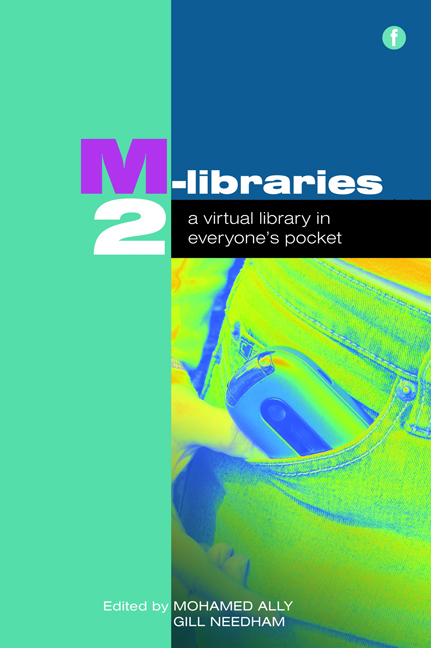Foreword
Published online by Cambridge University Press: 08 June 2018
Summary
Having been privileged to give a keynote address at the 2009 International M-Libraries Conference, I am pleased to pen a brief foreword to these Proceedings.
M-libraries represent a step change in the evolution of educational technology. Sometimes we are so infatuated with – or bemused by – the diversity of devices now available that we assume flexibility and variety to be the principal virtues of technology. Those are indeed important qualities, but the true essence of technology is to allow us to achieve quality at scale, inexpensively.
As educators, we face a threefold challenge. First, we want to maximize access to education, training and learning opportunities. Second, we want to make the quality of learning as high as possible. Third, we want to do this at the lowest possible cost. Think of these three aims as vectors making up a triangle: Access, Quality and Cost. This highlights the challenge, because with traditional teaching methods this is a cast-iron triangle – it is inflexible.
With classroom teaching, whenever you focus on any one of these three aims (wider access, better quality or lower cost) you will slip backwards on the others. Increase access by making classes bigger, and people will complain about quality. Introduce more learning materials, and costs will go up. Cut the costs of the system, and people will accuse you of both limiting access and damaging quality. The constraints of this triangle have handicapped education throughout history. They explain why so many people still believe that you cannot have quality education unless you restrict access to it.
Technology breaks open this triangle by allowing you to increase access, improve quality and cut costs all at the same time.
This has been demonstrated most convincingly by the world's open universities. The UK Open University, for example, has over 200,000 students, ranks fifth out of 100 British universities for the quality of its teaching, and has lower costs per student – and per graduate – than other universities. Not coincidentally, it and other open universities have been leaders in developing m-libraries.
This educational revolution derives from the fundamental technological principles of economies of scale, specialization, division of labour and machines.
- Type
- Chapter
- Information
- M-Libraries 2A virtual library in everyone's pocket, pp. xxix - xxxiiPublisher: FacetPrint publication year: 2010

